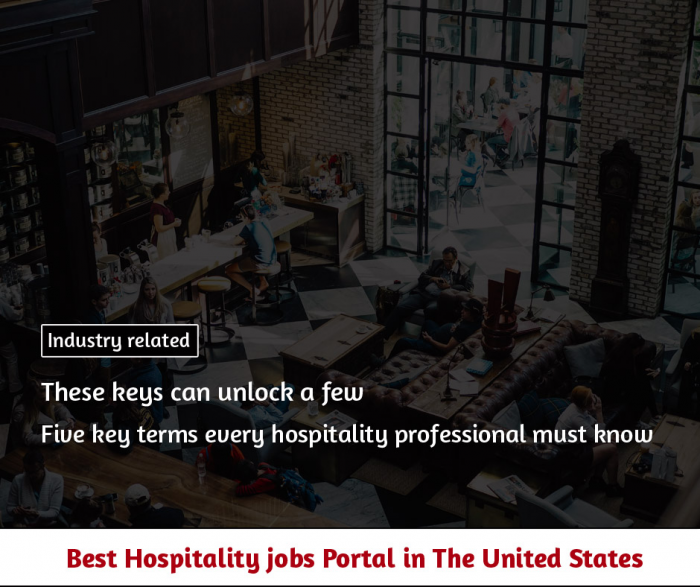Five key terms every hospitality professional must know

Every industry has its own terminologies and if you are a hospitality professional, it’s wise to be familiar with the industry jargon. This will not only help you to remain updated but will help you to build a better professional image in the Hospitality industry and amongst the clients. Here are 5 important terms every hospitality professional must know:
- Walking a client:
You might be familiar with the terms check-in and check-out but would have rarely come across the term ‘walking a client’. When a client with a reservation drops-in late to the hotel and the rooms are completely occupied, the client will be requested to occupy a room in a different hotel where they have tie-ups. Next time when you are walking a client, pat yourself for doing a wonderful service. It is always better to accommodate the guests in other properties rather than turning them away, isn’t it?
- Comped Rooms:
The word comped is derived from the word complementary which basically means free. The term comped rooms are the rooms offered to high-end customers in a casino. The clients might also get free meals and drinks apart from the comped rooms, after all, they are valued-customers who regularly participate in the casino games. The valued customers always expect augmented services from the service providers as they are the regular source of income generators for the casinos.
- Demand Generators:
This refers to the factors that help in purchasing an existing hotel or a new one. The factors could range from natural features like beaches, mountains to commercial properties such as shopping malls or a convention center. The higher the demand drivers a destination has, the better are the chances for it to be purchased. If you are a part of the hospitality industry, you must map your demand generators before purchasing a new hotel.
- MICE:
Wondering if we are referring to the small rodents? Absolutely not! MICE stands for ‘meetings, incentives, conventions and exhibitions’. Most of the corporate book hotels for meetings, events, conferences, and exhibitions. This gives an additional advantage to the hoteliers to generate money by serving food & beverages, and meeting room rentals. This guest segment of the hospitality industry helps the hotelier to capture the corporate segment and increase their presence along with the business.
- Tourists:
As a hospitality professional, you would have come across this term ample times. So, what could be the difference between visitors and tourists? As per United Nations World Tourism Organisation, business travelers and holidaymakers are said to be tourists only when they take an overnight halt at the destination or they would just be referred to as visitors.
These are the five most common hospitality terminologies that every hospitality professional must be aware of. As a hospitality professional, one must constantly make efforts to upgrade their skills.
Looking for hospitality jobs? Interest in making a career in the hospitality industry? Get in touch with us or visit https://www.hospitalityjobs.com to know about job opportunities in the hospitality industry.
Job seekers can register and upload your resume here and apply to millions of Full-Time and Part-Time Jobs in USA across top companies in the hospitality industry in your desired locations Now! Connect with 10000+ employers and get the latest job alerts about similar jobs now on the Best Hospitality Jobs portal in the USA.
